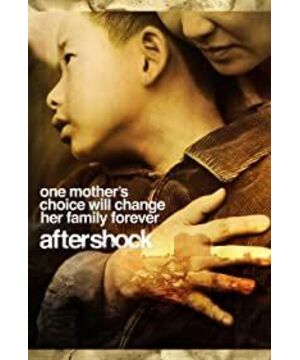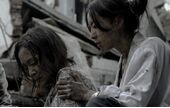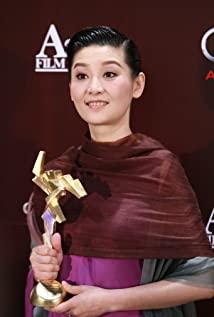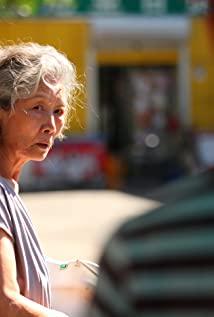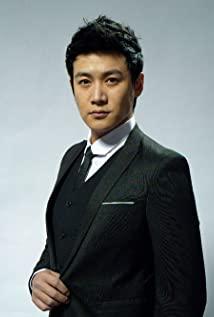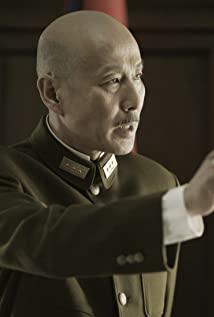A drama about finding forgiveness based on a novel of the same name, Aftershock depicts not only the fatal tragedy that is brought on by a natural catastrophe, but also the strength and courage demonstrated when people face extreme and devastating situations.
The story unfolds with the mother, Li Yuanni, who just survived the Tang Shan earthquake thanks to the self-sacrifice of her husband, being informed by the rescue team that her 7-year old twins are buried under the debris close to each other. As digging one out would result in further collapse of the wreckage on the other, she was forced to make the most difficult decision of her life. As the clock ticked away, she finally ended her struggle and chose to save the boy, and though heartbroken , she had no idea her decision was overheard by her daughter. Deemed as a dead person, the little girl miraculously survived and was rescued by the military several days later. Suffering from the emotional shock of the disaster and the painful memory of her mother's choice , she refused to talk or reveal who she was. Adopted by a young couple,got pregnant accidentally in college and later moved to the US, she was shadowed by the traumatic experience from her childhood, and forever remained emotionally closed up.
When the Sichuan earthquake takes over 80,000 lives in 2008, she volunteers to join the rescue team and returns to her homeland, China. As she witnesses the tribulations people go through when a natural disaster takes place, she finally unlocks the pain she had felt all these years, finds forgiveness and reunites with the mother and her twin brother she had parted from after 32 years (Chong).
A movie centering on two women, a regretful mother and her separated daughter haunted by her childhood trauma, the film brings on screen and to the center of social consciousness the issues of Chinese women and the traditional family values – Nan Zun Nv Bei (the distinguished male and humble female) and Cong Yi Er Zhong (married once, married forever).
The story starts with the happy and harmonious life of a middle class family in pre-earthquake Tangshan in 1976. The structure of the family sets up the ideological patriarchal assumption of the film: the father Fang Daqiang is a bus driver and the breadwinner of the film family. His economic status and male role also defines him as the ruling class within the family; the female leading character Li Yuanni is a wife and mother, a typical Chinese woman happily subordinated to her husband at home; and then there are the son and the daughter, the future generations whose roles are not yet sexually or socially defined. As the default setting in most contemporary Chinese cinema, the protagonists' family is an epitome of the ordinary family structure in Tangshan. On behalf of the ruling class, patriarchy is articulated as a consensus,a promise received and acknowledged by everybody.
Female oppression is disguised by the peaceful life of the city; and the family celebrates the growing postsocialist modernity, culminated with the scene of the young couple having sex in the back of the husband's truck, a signifier of economic wealth. In this scene, the female body becomes a sex tool, while the man remains to represent the working tool in industrial production. As the female character Yuanni certainly enjoys the excitement of wild sex, jokingly asking her husband if they are the only people in Tangshan doing “this thing” at the time, the audiences, with the anticipation of an earthquake and the following ordeal, will easily accept the pre-earthquake way of family life as an ideal model, giving patriarchy and class oppression legitimized names.
Socialist feminists believe that the home is not just a place of consumption, but of production as well. Women's work within the home, having and raising children, as well as supporting men by doing cooking, cleaning, and other forms of housework which permit men to work outside the home, are all forms of production because they contribute to society at large. Production, according to socialist feminists, should not be measured in dollars, but rather in social worth (Lilith eZine). However, in the opening sequence of Aftershock, the image of a traditional Chinese home is romanticized, as in contrast with the destruction of the home after the earthquake. The woman Yuanni's satisfaction with her gender at home is also emphasized and eulogized, thus her oppression becomes invisible to both the narrative and the audiences.As is also the case of the society, Yuanni represents the contemporary Chinese woman, the powerless and subordinate class who do not see themself as oppressed or exploited under the ideological control of the dominant class through the production of cultural texts and practices. As Karl Marx suggests, “the mode of production of material life conditions the social, political and intellectual life process in general. It is not the consciousness of men that determines their being, but on the contrary it is their social being that determines their consciousness” (Marx ).“the mode of production of material life conditions the social, political and intellectual life process in general. It is not the consciousness of men that determines their being, but on the contrary it is their social being that determines their consciousness” (Marx).“the mode of production of material life conditions the social, political and intellectual life process in general. It is not the consciousness of men that determines their being, but on the contrary it is their social being that determines their consciousness” (Marx).
There are also cues in the sequence that embraces post-socialist modernity: the director uses a series of shots, including close-ups focusing on the two kids enjoying the fan, a signifier of modern technology given by their father. The kids are moving in According to the panning fan, saying, “Cool.” The two kids also fight for a red apple in the house, another signifier of growing wealth in pre-modernized China, and the mother Yuanni undoubtedly asks the daughter to give the apple to her little brother for the excuse that he is younger, a hint foreshadowing her later “boy or girl” decision. However, prior to the fan-enjoying scene, the little girl Fang Deng remarkably shows a feminist feat: after her younger brother Fang Da being bullied by a elder boy, Fang Deng assaults the boy from behind and immediately runs away with her brother.Such rebellious characteristic remains in later parts of the film as she grows up.
Unfortunately the disastrous earthquake ruins everything. The city collapses, and the father Fang Daqiang sacrifices his life saving his wife Yuanni. Such narrative seems to be allegorical of the destruction of the current social order and patriarchy, but soon the illusion is denied. As the survivor of the earthquake, Yuanni still chooses to live under the patriarchal system. Every Chinese lunar New Year, Yuanni will talk to the plaque of her dead husband, the replacement and re-embodiment of the male power of the family that sits in the middle of the table, and burn paper money to the dead. Yuanni also refuses to move and insists to stay in her shabby apartment so that the dead will know how to find the way back. Once again, the reinforcement of the phallic power and the patriarchal order hides behind the criticism of superstition.
In addition, Yuanni refuses to get married again. Even though there is a nice man pursuing her, she chooses to stay with her dead husband. Her loyalty and adherence to her dead husband, coupled with her independence in bringing up her amputated sun is highly commended in the film. Thus, female subordination is equalized to loyalty and adherence. An energetic and passionate woman who enjoys wild lovemaking at first, Yuanni soon learns to suppress her own sexual desire and becomes a virtuous widow. In creating the respectful image of the mother, the film also delivers a message that highly confirms the “married once, married forever” traditional value which is very contributive to maintain the low divorce rate in Mainland China. Hense the eulogy of a woman's loyalty to her husband endorses the ideological oppression of women.There are also hidden messages conveying here that once a woman is married to a man, she becomes his commodity forever, even if the owner of the commodity no longer physically exists anymore, and that a woman should not pursue individual happiness beyond her family's collectivity. The center of a woman's life will always be a man instead of herself. For a married woman with kids, her life should either be affiliated with her husband or her son and she is forever the “second sex,” an object or accessory of a man. However, as well as a film in the background of a disaster, Titanic presents a total different value and ideology. Also a woman who lost her loved one, Rose got married after she was rescued from the ocean and became a mother and grandmother . Likewise suffering from the loss and trauma,she chose to pursue her own happiness as a tribute to Jack's love and self-sacrifice, which forms a sharp contrast with her virtuous Chinese counterpart Yuanni.
On the other hand, there are certain characteristics of Yuanni that sound feministic. As a helpless single mother, Yuanni alone bears the important task of raising her disabled boy Fangda who lost an arm in the earthquake. In ordinary people's view, a family without a father is doomed to be tragic. Especially in a patriarchal world, the absence of the father indicates the incompleteness of a family. However, Yuanni's insistence and obstinacy of taking care of the boy alone and her refusal to let her husband's family take the child away , displays the strength and independence of a woman, and defies the mainstream patriarchal discourse.
The character of the daughter Fang Deng, a traumatized survivor and victim of the earthquake, also becomes a victim of the post-socialist and patriarchal society. Protecting her younger brother by getting revenge on the elder boy who bullied her brother, Fang Deng appeared to be a brave girl who was able to do things better than boys. After being adopted by the infertile couple of the military, Fang Deng also showed a strong sense of self-consciousness. Although she remained silent at the beginning, she was solitary, and full of personality. However, her personality is not enough to change her social role as a woman. After going to college, she got pregnant accidentally and was abandoned by her boyfriend, an irresponsible graduate student. Deciding not to abort her child as what her mom did to her, she gave birth to the baby.And rebellious enough, she quitted school, became a private English teacher, and refused help from her adoptive father, which can be read as a repudiation and denial of patriarchy. A single mother with her child, she struggled to make a living but was not successful. However strong and adamant she was, the society relentlessly oppressed and denied her independent existence as a proletariat woman. Eventually, she surrendered and escaped to patriarchy and capitalism -her rescue came with the offer of a wealthy white man from Canada. Thus, her identity is realized as the wife of a successful foreign man, not through being a successful woman herself. The feminist ideal comes to disillusionment, and director provides no solution for women's fate in contemporary Chinese society other than submission to the current order.Even though the woman seems to have fled to an alien haven, her refuge still cannot escape patriarchy and class division.
Even though it is a film constructed on patriarchal and post-socialist ideology, Aftershock shows a rather ambiguous attitude towards Chinese patriarchy and phallocentrism. Like some of Zhang Yimou's early films such as Raise the Red Lantern, or Yellow Earth, which were criticized for self -orientalising and offering exotic male gaze for western audiences by masking the father characters, the image of the father is also almost absent in Feng Xiaogang's Aftershock. Fang Daqiang, father of Fang Deng and Fang Da, dies in the earthquake and becomes absent. The adoptive father Mr. Wang, starring veteran Chinese actor Chen Daoming, is an official in the Chinese military whose male identity as a father is incomplete because of his impotence. Fang Deng's college boyfriend turns out to be an irresponsible coward who dares not accept his own mistake;his lack of courage and his punishment - a slam in the face by the adoptive father deny his masculinity. Fang Da is the mother's good boy and an amputated man, and his “lack” also suggests that his maleness is also somehow not complete. And finally there is a masculine foreign man, healthy and wealthy, who stands out as a threat for Chinese men and causes anxiety among Chinese male audiences.
Eventually, Fang Da re-establishes the patriarchal order in the family after he has become wealthy and married. Driving a BMW, Fang Da's marriage comes along with his economic success. The upgrading of his social status from a tricycle riding proletariat to a fancy car -owning bourgeois thus guarantees his role in the ruling class of his family. In the scene in which he and his wife went back home to visit his mom, he yells at his wife and commands her to leave their baby with Yuanni for the lunar New Year. Don't have the right of decision-making in the family, the wife Xiao He cannot resist but cry. Exclaiming that “don't think that I married you because of your money,” Xiao He arouses the audiences' laughter in the cinema since they are all familiar with Feng's idiomatic “thief crying stop thief” humor as they sniff at Xiao He:“now you regret marrying a man because of his money, huh?” Failing to persuade Xiao He, Fang Da reveals his male chauvinism by chiding her: “You don't have the right to make a decision for this matter. You have to listen to me.” With tears in her eyes, Xiao He fights back by saying that “don't bully me too much, otherwise the chicken will fly away with the eggs (a metaphor that she might divorce with him).” Totally disregarding her threat, Fang Da replies that “there is no shortage of chicken, and eggs can be laid again as well.” Playing with the humor, the director boldly reinforces such a hegemonic male chauvinism to his audiences, as they identify with Fang Da, a civilian hero who changes his destiny by fighting against the adversity of his life and gaining success in the competitive modern urban China and pity with the elder mother Yuanni,who has been lonely since her son left her to work in the city. Xiao He, on the other hand, is depicted as a cheap woman who has no self-esteem because of her need for money and wealth. Even though her individual consciousness suddenly awakes along with her maternal love at the fear of losing her baby, she surrenders to the patriarchy and hierarchy as she obeys and compromises with her husband eventually. In this scene, the film's visual devices include close-ups to centralize the young heroine Xiao He and montage editing between the husband and wife to reinforce class conflict and oppression of women.Even though her individual consciousness suddenly awakes along with her maternal love at the fear of losing her baby, she surrenders to the patriarchy and hierarchy as she obeys and compromises with her husband eventually. In this scene, the film's visual devices include close-ups to centralize the young heroine Xiao He and montage editing between the husband and wife to reinforce class conflict and oppression of women.Even though her individual consciousness suddenly awakes along with her maternal love at the fear of losing her baby, she surrenders to the patriarchy and hierarchy as she obeys and compromises with her husband eventually. In this scene, the film's visual devices include close-ups to centralize the young heroine Xiao He and montage editing between the husband and wife to reinforce class conflict and oppression of women.
A film that attracts audiences to cinema with its highly promoted visual effects, Aftershock sells the story of a family melodrama that manipulates audiences' emotions from sudden laughter to collective tear-downpour. Although a film that eulogizes a mother's selfless love and insistence, and the daughter's ultimate understanding and forgiveness of her misunderstood mother, the film expresses a fatalistic powerlessness of femininity towards Chinese patriarchy and post-socialist modernity.
View more about Aftershock reviews


